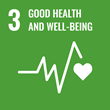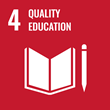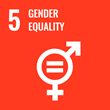Project information
National Institute of Virology and Bacteriology
(NIVB)

- Project Identification
- LX22NPO5103
- Project Period
- 6/2022 - 12/2025
- Investor / Pogramme / Project type
-
Ministry of Education, Youth and Sports of the CR
- national recovery plan
- 5.1 EXCELES
- MU Faculty or unit
-
Central European Institute of Technology
- prof. RNDr. Robert Vácha, PhD.
- Mgr. Gabriel Demo, Ph.D.
- Mgr. Martina Drabinová
- Francesco Luca Falginella, Ph.D.
- Ing. Tibor Füzik, Ph.D.
- Mgr. Mária Gondová
- Ing. et Ing. Miroslav Haman
- Mgr. Adelheid Hanáčková
- Ing. Ondřej Kroutil, Ph.D.
- Timothée Emmanuel Jonathan Rivel, Ph.D.
- Mgr. Jana Salamonová
- prof. RNDr. Robert Vácha, PhD.
- Other MU Faculty/Unit
- Faculty of Medicine
- Other MU Faculty/Unit
-
Faculty of Science
- prof. RNDr. Roman Pantůček, Ph.D.
- Mgr. Tibor Botka, Ph.D.
- Lenka Buňatická
- prof. RNDr. Jiří Doškař, CSc.
- Mgr. Adéla Finstrlová, Ph.D.
- Mgr. Jiřina Havránková
- Mgr. Vojtěch Kovařovic, Ph.D.
- Mgr. Lucie Kuntová, Ph.D.
- Mgr. Ivana Mašlaňová, Ph.D.
- Mgr. Michal Zeman, Ph.D.
- Cooperating Organization
-
Institute of Microbiology of the ASCR, v. v. i.
Institute of Molecular Genetics of the ASCR, v. v. i.
Institute of Organic Chemistry and Biochemistry of the ASCR, v. v. i.
- Responsible person RNDr. PhDr. Zdeněk Hostomský, CSc.
Palacký University, Olomouc
Prague Institute of Chemical Technology
Biological Centre of the ASCR, v. v. i.
Basic and oriented or clinical research on viruses and pathogenic bacteria is essential to understand the processes by which they cause disease, how they escape the immune system and how they can resist treatment. Therefore, research activities at the National Institute of Virology and Bacteriology will focus on characterizing pathogens causing existing and emerging infectious diseases, describing virus and bacteria interactions with the host, understanding the molecular mechanisms of pathogenesis, and developing antiviral and antibacterial agents and vaccines. Individual research groups will work on viruses and bacteria causing diseases with significant health and economic impact, including HIV-1, influenza, tick-borne encephalitis, hepatitis B, SARS-CoV-2, enteroviruses, and the bacteria B. pertussis, S. aureus, and T. pallidum. By working with pathogens that are relevant to current clinical practice, the research groups will have the expertise and equipment for the ongoing study of new pathogens that could become prevalent in the human population in the future.
Sustainable Development Goals
Masaryk University is committed to the UN Sustainable Development Goals, which aim to improve the conditions and quality of life on our planet by 2030.
Publications
Total number of publications: 128
2022
-
Structure of Human Enterovirus 70 and Its Inhibition by Capsid-Binding Compounds
Journal of Virology, year: 2022, volume: 96, edition: 17, DOI
-
Structures of L-BC virus and its open particle provide insight into Totivirus capsid assembly
Communications Biology, year: 2022, volume: 5, edition: 1, DOI
-
Syphilis causing strains: differences in growth rates and patients infection characteristics
Year: 2022, type: Conference abstract
-
Syphilis causing strains: differences in growth rates and patients infection characteristics
Year: 2022, type: Appeared in Conference without Proceedings
-
Tail proteins of phage SU10 reorganize into the nozzle for genome delivery
Nature Communications, year: 2022, volume: 13, edition: 1, DOI
-
THE CLOSE INTERPLAY OF TWO GENE EXPRESSION MACHINERIES
Year: 2022, type: Conference abstract
-
Tick-borne encephalitis virus capsid protein induces translational shutoff as revealed by its structural-biological analysis
JOURNAL OF BIOLOGICAL CHEMISTRY, year: 2022, volume: 298, edition: 11, DOI
-
Virion structure of Leishmania RNA virus 1
VIROLOGY, year: 2022, volume: 577, edition: DEC, DOI


